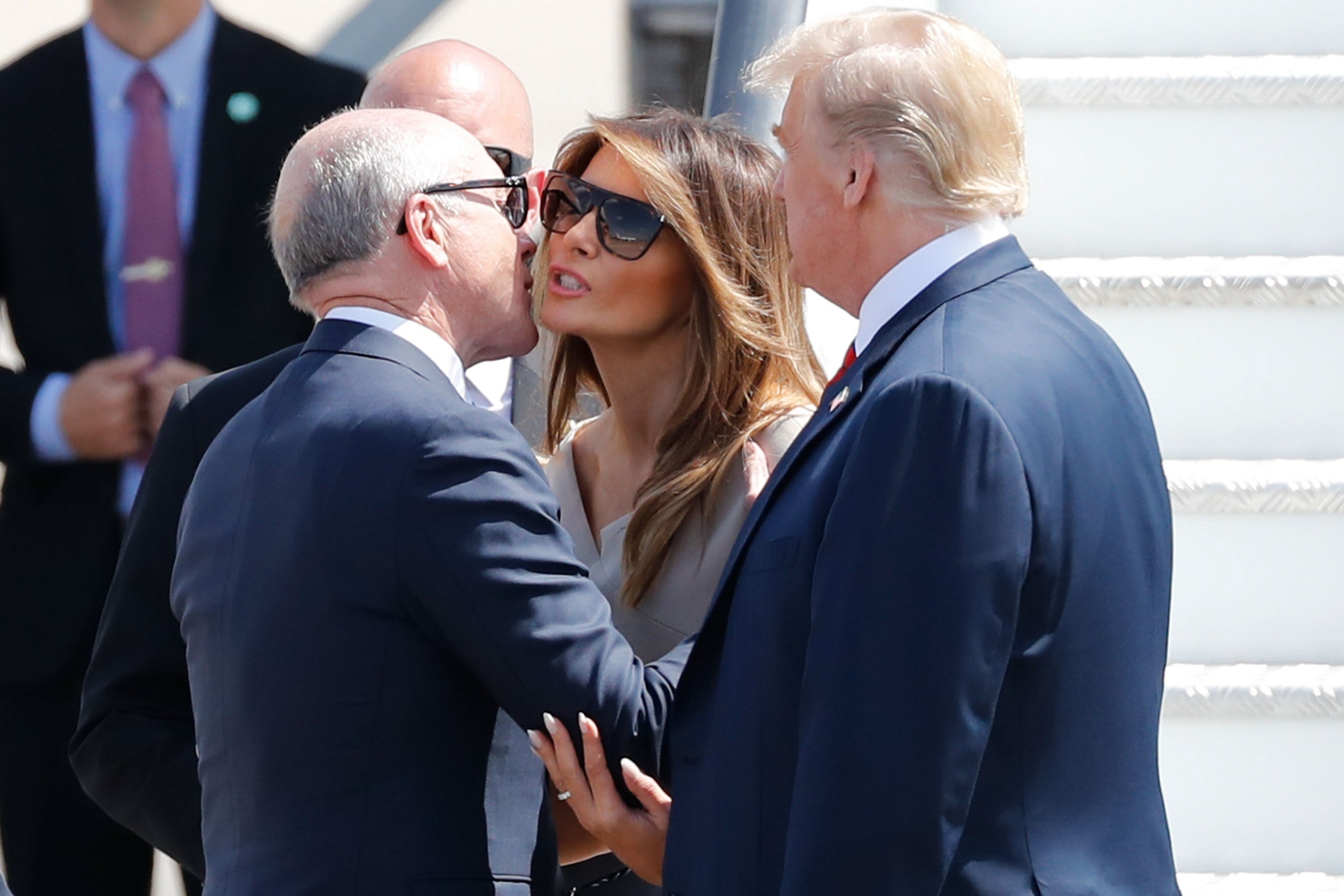Would Theresa May’s Brexit plan destroy the prospect of a US trade deal?
Analysis: The US ambassador has said the PM’s EU withdrawal deal would make a favourable trading arrangement with Trump’s America impossible. Is he right? asks Ben Chu


The traditional role of an American president is to act presidentially and the role of his ambassador abroad is to be diplomatic.
Donald Trump hasn’t paid much regard to tradition since he won the White House. So we probably shouldn’t be too surprised that his man in London hasn’t lived up to his role either.
Woody Johnson, the US ambassador to the UK, said today that if the UK parliament approves Theresa May’s Brexit deal, the chances of an ambitious trade deal with America are effectively dead.
“It doesn’t look like it would be possible,” he told the BBC.
In other words, he rubbished Theresa May’s central strategy – a strategy on which her political survival hangs.
For good measure he added that “I’m feeling the country is in need of leadership”.
At least we might hear less about our “special relationship” now.
With friends like this the prime minister must be wondering whether she needs all those enemies.
The bottom line is that, whatever one thinks of May’s deal, it is rather premature for Johnson and Trump to warn that it would kill a hypothetical future US trade deal
But what of the substance of Johnson’s claim – really an echo of something Trump already said in November – that May’s proposed deal will rule out a substantive post-Brexit trade deal with the US?
Well, it’s true that there can be no trade deal signed between the UK and the US immediately after Brexit in March 2019 if MPs approve the withdrawal agreement since this specifies a 21-month transition period during which the UK will remain within the EU single market and the customs union.
The rules of both preclude any member state entering a bilateral trade deal with a third country.
If the UK doesn’t agree an EU trade deal by January 2020 the transition period could be extended or the Northern Irish backstop could kick in. Both would mean the period during which the UK is unable to sign a US agreement would continue.
But after that? The non-legally binding UK-EU political declaration, which accompanies the withdrawal agreement, references “ambitious customs arrangements that build on the single customs territory” between the UK and the EU.
This could mean anything from the UK effectively remaining in a customs union with the EU to technological measures to speed up border checks.
The former would rule out a major US trade deal, at least on goods. But the latter wouldn’t, something Downing Street has repeatedly stressed.
The bottom line is that, whatever one thinks of May’s deal, it is rather premature for Johnson and Trump to warn that it would kill a hypothetical future US trade deal.

What’s most striking about their comments is how closely they echo the arguments of hardline Brexiteers here in the UK – the ones who are calling for the UK to crash out of the EU rather than approve May’s deal, which they say would destroy their dream of a Britain totally free of the EU.
A reasonable question is whether those Brexiteers – many with strong links to the Republican Party – have successfully reached out to the Trump administration to intervene in the UK debate and to trash the prime minister’s Brexit plan with the hope of swinging parliamentary opinion decisively against May’s deal.
Got an unanswered question about Brexit? Send it to editor@independent.co.uk and we’ll do our best to supply an answer in our Brexit Explained series
Join our commenting forum
Join thought-provoking conversations, follow other Independent readers and see their replies
Comments
Bookmark popover
Removed from bookmarks